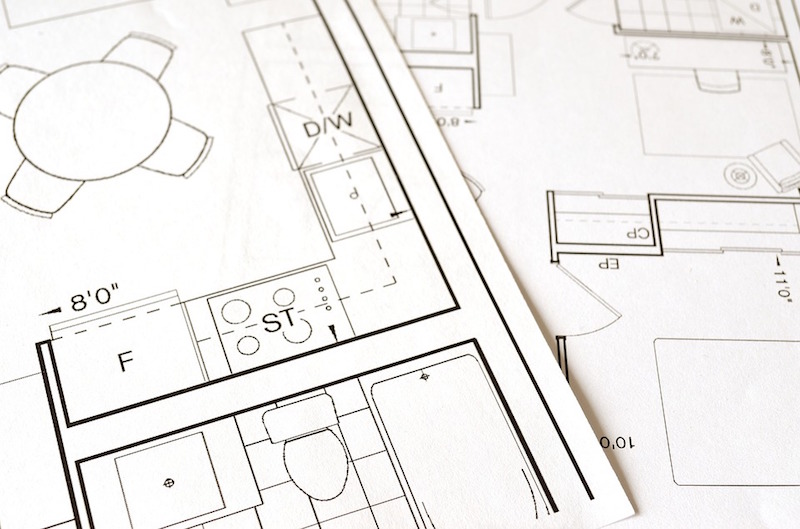The Enterprise Rose Architectural Fellowship and architect Lawrence Scarpa, FAIA, have been selected as the 2017 recipients of the Collaborative Achievement Award, which recognizes and encourages distinguished achievements of allied professionals, clients, organizations, architect teams, knowledge communities, and others who have had a beneficial influence on or advanced the architectural profession. The recipients will be honored at the AIA Conference on Architecture 2017 in Orlando.
Enterprise Rose Architectural Fellowship
Launched in 2000 by affordable housing and community development organization Enterprise Community Partners, The Enterprise Rose Architectural Fellowship is recognized for cultivating a generation of architects committed to bringing the economic, health and education benefits of quality design to low-income communities. Enterprise believes architects are a critical part of the solution to end the growing housing insecurity crisis in the U.S. which forces more than one in four renters to pay at least 50 percent of their income on their home, risking their health, education and economic mobility.
Founded with a mission to integrate ideals of design excellence within organizations that work with underserved communities, the fellowship has paired its fellows with over 75 organizations serving diverse geographies and communities. Rose Fellows, represented by the country’s finest early-career architects, are continually engaged in pressing issues and propelling the profession forward. Partnering emerging designers with community developers for three years, the fellowship is the premier career path for young architects to support public interest design. To date, the 69 fellows have created or preserved more than 12,000 affordable homes across the country. Fellows sharpen essential architectural skills while developing financing, policy, community engagement and organizing skills, as part of the fellowship's effort to develop architectural leaders who have the empathy, humility and experience to be effective community advocates.
The impact and success of the Enterprise Rose Architectural Fellowship is felt in its ability to define and influence public policy and the frameworks for the design of buildings and communities.
Lawrence Scarpa, FAIA
A unique mix of design excellence, social responsibility, stewardship, and service to the profession has defined Lawrence Scarpa’s 30-year career in architecture. In 2001 Scarpa and Angela Brooks, FAIA, co-founded Livable Places, a nonprofit policy and development organization that actively promotes affordable and sustainable communities. Comprising a cadre of developers, advocates, architects, and bankers led by Scarpa, Livable Places has played an instrumental role in a number of policy changes in California, setting the stage for transformation of the state’s communities.
In Los Angeles the A+D Architecture and Design Museum, which Scarpa co-founded, has established a keen awareness of architecture and design in the everyday life of its visitors. For the past 15 years the museum’s progressive exhibitions, youth-oriented education programs, and community events have celebrated the built environment and examined the issues surrounding it. The museum annually hosts AIA/LA’s 2x8 symposium and exhibition, which Scarpa organized and developed as a Chapter board member. The program highlights exemplary student work from architecture and design institutions throughout California.
Modeled after the Mayors’ Institute on City Design, the Affordable Housing Design Leadership Institute, an initiative devised by Scarpa and Maurice Cox, FAIA, in 2008, assembles leaders in affordable housing for a two-and-a-half-day seminar focused on innovation and best practices. Now administered by Enterprise Community Partners, where Scarpa is an advisory board member, the institute provides year-round assistance to organizations through the Enterprise Rose Architectural Fellowship program and has enabled 60 nonprofits and community groups throughout the country better their communities. The jury for the 2017 Collaborative Achievement Award includes: Illya Azaroff, AIA, (Chair), +LAB architects; Hans Butzer, AIA, Butzer Architects and Urbanism; Damian Farrell, FAIA, Damian Farrell Design Group; Jared Edgar Mcknight, Assoc. AIA, Wallace Roberts & Todd, LLC and Lynn M. Perkins, AIA, Bill & Melinda Gates Foundation.
Related Stories
| Nov 15, 2010
Gilbane to acquire W.G. Mills, Inc.
Rhode Island-based Gilbane Building Company announced plans to acquire W.G. Mills, Inc., a construction management firm with operations based in Florida. The acquisition will dramatically strengthen Gilbane’s position in Florida’s growing market and complement its already established presence in the southeast.
| Nov 11, 2010
Saint-Gobain to make $80 million investment in SAGE Electrochromics
Saint-Gobain, one of the world’s largest glass and construction material manufacturers, is making a strategic equity investment in SAGE Electrochromics to make electronically tintable “dynamic glass” an affordable, mass-market product, ushering in a new era of energy-saving buildings.
| Nov 11, 2010
Saint-Gobain to make $80 million investment in SAGE Electrochromics
Saint-Gobain, one of the world’s largest glass and construction material manufacturers, is making a strategic equity investment in SAGE Electrochromics to make electronically tintable “dynamic glass” an affordable, mass-market product, ushering in a new era of energy-saving buildings.
| Nov 11, 2010
USGBC certifies more than 1 billion square feet of commercial space
This month, the total footprint of commercial projects certified under the U.S. Green Building Council’s LEED Green Building Rating System surpassed one billion square feet. Another six billion square feet of projects are registered and currently working toward LEED certification around the world. Since 2000, more than 36,000 commercial projects and 38,000 single-family homes have participated in LEED.
| Nov 10, 2010
$700 million plan to restore the National Mall
The National Mall—known as America’s front yard—is being targeted for a massive rehab and restoration that could cost as much as $700 million (it’s estimated that the Mall has $400 million in deferred maintenance alone). A few of the proposed projects: refurbishing the Grant Memorial, replacing the Capitol Reflecting Pool with a smaller pool or fountain, reconstructing the Constitution Gardens lake and constructing a multipurpose visitor center, and replacing the Sylvan Theater near the Washington Monument with a new multipurpose facility.
| Nov 9, 2010
Just how green is that college campus?
The College Sustainability Report Card 2011 evaluated colleges and universities in the U.S. and Canada with the 300 largest endowments—plus 22 others that asked to be included in the GreenReportCard.org study—on nine categories, including climate change, energy use, green building, and investment priorities. More than half (56%) earned a B or better, but 6% got a D. Can you guess which is the greenest of these: UC San Diego, Dickinson College, University of Calgary, and Dartmouth? Hint: The Red Devil has turned green.
| Nov 9, 2010
12 incredible objects being made with 3D printers today
BD+C has reported on how 3D printers are attracting the attention of AEC firms. Now you can see how other creative types are utilizing this fascinating printing technology. Among the printed items: King Tut’s remains, designer shoes, and the world’s smallest Rubik’s Cube.
| Nov 9, 2010
U.S. Army steps up requirements for greening building
Cool roofs, solar water heating, and advanced metering are among energy-efficiency elements that will have to be used in new permanent Army buildings in the U.S. and abroad starting in FY 2013. Designs for new construction and major renovations will incorporate sustainable design and development principles contained in ASHRAE 189.1.









